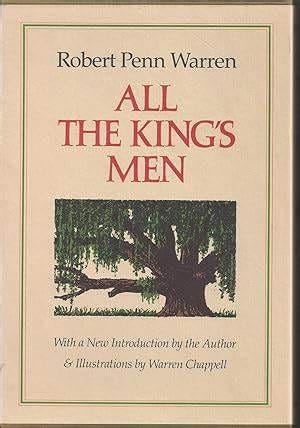All the Kings Men
A Timeless Exploration of Truth, History, and Personal Responsibility
"All the King's Men," the 1946 Pulitzer Prize-winning novel by Robert Penn Warren, did not originally grace my reading list—not due to neglect or animosity toward Warren, but rather owing to what I term descriptive discrimination. Whenever I encountered this novel, it was consistently presented as a "political novel." Given my limited interest in fictio…





